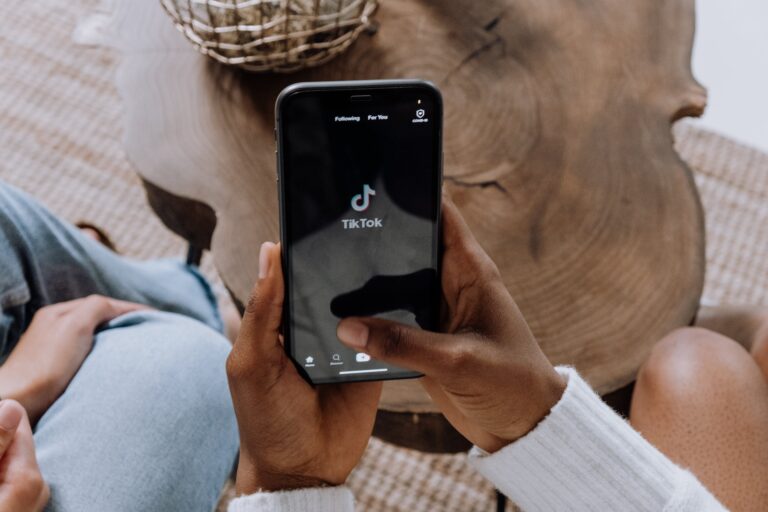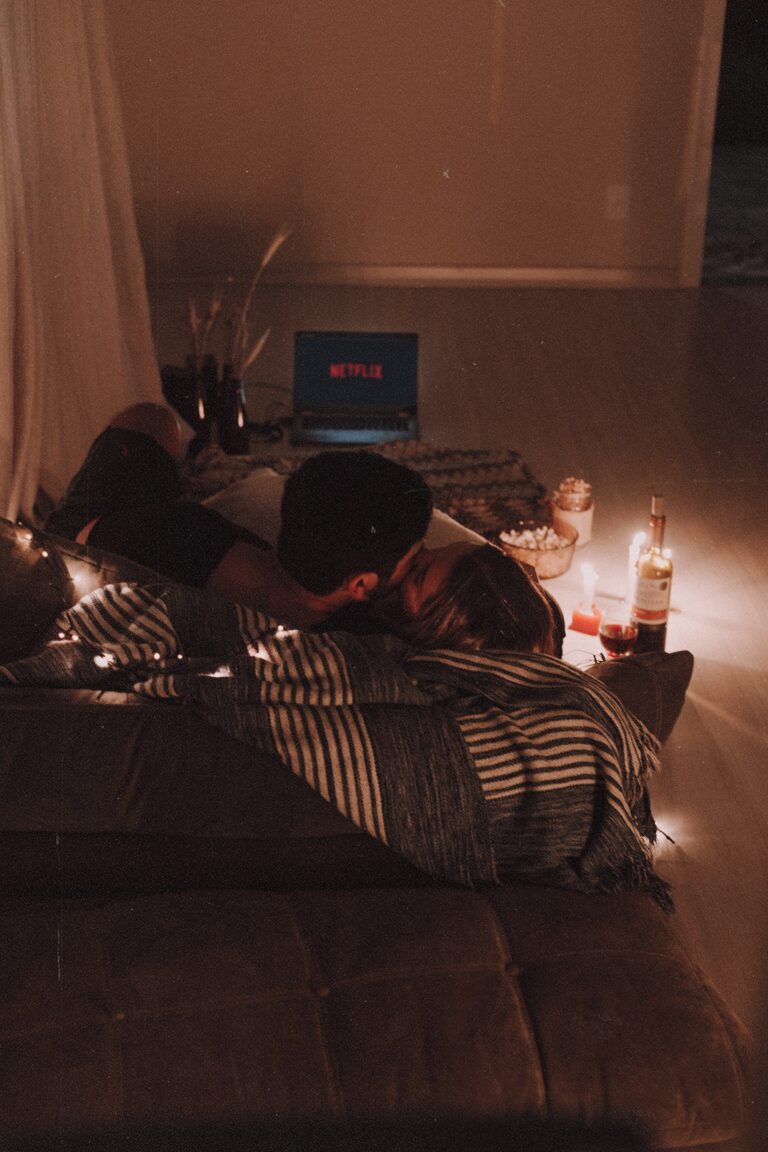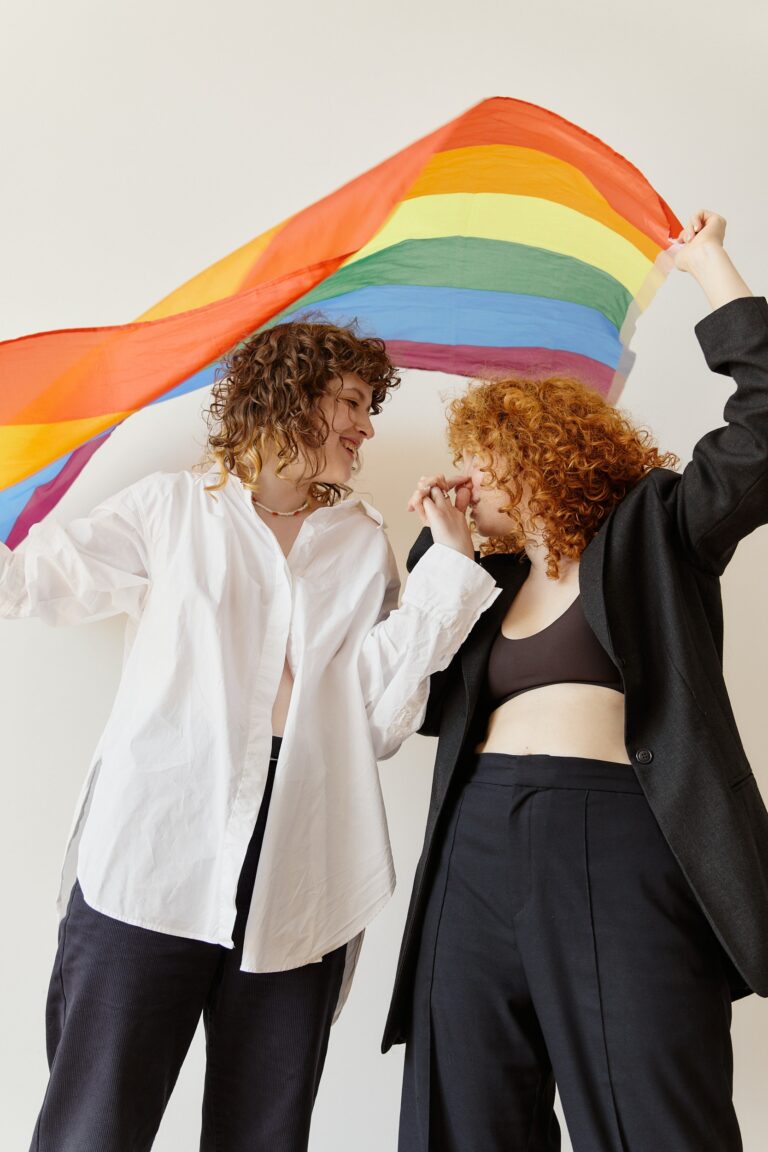Lights Up On The Harrie Fandom: An Analysis

The Grammy Album of the Year winner, Harry Styles, is the man the world is non-stop talking about. Rightfully so, as Harry has gained recognition for his artistry, high-energy performances, and his impact. Harry Styles owes his success to his immense dedication, his ability to find time to rest and reflect, his passion and love for his music and Pleasing, his familial support, and his fan base.
His fanbase, named after him of course, the Harries, is a massive fanbase made up of thousands upon thousands of fans worldwide. It seems that you cannot go on any social media platform without some type of Harry Styles content being shared by one of them. The Harries fanbase receives a lot of targeted marketing towards younger fans that are in their early teens to upper 20s into mid-30s. However, in reality, this fanbase has very young fans from the age of 3 to fans that are 60 years and above. The fandom appears to be a predominantly female-identifying fanbase, but the fanbase itself is mixed gender expression.
There’s not a true representation of looks, ages, and identities that are in the Harry Styles fanbase. The people who make up the fanbase are widespread in their identities from their race, gender, nationality, ethnicity, socioeconomic status, age, ability, sexuality identity, age, etc.; the fanbase is heavily diverse. Harry intentionally created a diverse fanbase.
It’s how he talks about himself and his fans. In one part of his interview with Zane Lowe for Harry’s House, Harry said regarding artists “music is an industry where everyone wants to be loved”, I believe that statement is very nuanced. Music is an industry where everyone wants to be loved. Everyone. From the artist and their music, to their team, to the venue staff, to everyone involved from start to finish, and also the fans.
Music is a way for people to regulate their moods and emotions, have a moment to be heard, and made visible by a song or by their favourite artist. Music is an industry where everyone wants to be loved – therefore make it love. Make it lovely. Make it full of love from the way you interview, the way you speak, the way you captivate an audience, the way you create your fanbase, and the way you tour.
Love on Tour. It reflects that. Harry has made it his mission to ensure that he has a love for himself and for his fanbase. He does his best to make sure his fanbase has internal love for each other. Harries finds a sense of home with Harry. It doesn’t matter if you have or haven’t been to a concert of his, you are home with Harry near and far.
After Harry opens his shows, he does a welcoming speech to all attending. It’s not meant for anyone in particular, it’s for everyone to find a safe space. Even if you haven’t been to a concert of Harry’s the sentiment still reaches out to you: safety and welcome. Harry says: “[if you want to dance] please feel free to do whatever you want to do in this room tonight. Please feel free to be whoever you’ve always wanted to be in this room tonight”.
It’s freeing to be told that – you in that room or when your day comes to be in the room with Harry, you can be you. Unapologetically and can embrace the entire being that is you without fear. For that 1.5-hour show, you can be the freest you’ve ever been. As with Harry there are no walls up in the home that he makes for his fanbase.
Harry is great at using the formula for meaningful fan engagement. Which is using the 5 key principles or the 5 “E’s” that focus heavily on placing fans at the centre.
- Knowing who your fans are and their personality (Entice)
- Prioritizing storytelling that fosters two-way conversations (Enlighten)
- Highlighting the value of fan experiences and building community (Enrol)
- Sustaining brand loyalty (Engage)
- Empowering fans (Empower)
To go into depth more on how Harry and his team use each step to maximize the fanbase engagement and development he wants, go check out The Formula For Meaningful Fan Engagement.
Since the One Direction era, Harry has utilised those 5 steps to create a meaningful experience with Directioners. As a solo artist who has become a household name, Harry’s ability to entice, enlighten, enrol, engage, and empower his fans has led to the development of a fanbase that matches him. According to the fan engagement formula, a fanbase is supposed to reflect the artist and what they believe in. This is how the official, yet unofficial mantra and brand of Harry Styles has become “Treat People With Kindness” or TPWK for short.
Harry used the ideology of treating people with kindness frequently during his 2018 tour and made it his special affirmation. Treat People With Kindness was transformed into a title track from his sophomore album Fine Line, as a tribute to fans as a thank you for allowing him to be authentically him without a need for a label or a reason why when being himself. That explains his speech at the beginning of his shows – he wants to make it known that he understands the pressures of fitting into a mould that isn’t you and masking your true you. With his fans, Harry can be the most real version of himself that he wishes to share with us and makes space to reciprocate it for his fanbase.
What is a fandom?
Fandoms are 100% participatory. You find your way into the fandom through various means, and you begin your journey. The best way to think about the formation of a fandom is that fans are the producers and makers of creative content from fan fic, TikTok videos, blogs, art projects, fashion, etc., that is based on the initial consumption of the product created by their favourite singer, actor, athlete – the list goes on.
What makes a participatory fan culture is:
- Low barrier to artistic expression and civic engagement.
- Strong support for creating and sharing one’s creations with others.
- Informal mentorship in which the most experienced members pass along their knowledge to new fans.
- Members who believe their contributions matter.
- Members who feel some degree of social connection with another and care about other members’ opinions about their contributions.
There is no argument that the Harrie fandom is a participatory style format, that naturally comes from stan culture. As mentioned before, social media is saturated with Harry Styles-related content by fans who are talking about Harry and trying to make an impact on the fandom. I have been that “informal mentor” for those who are Harry fans post-One Direction. I have helped newer fans get up to speed on One Direction’s history to understand the artist that Harry is now.
There is a book called Understanding Fandom: An Introduction to the Study of Media Fan Culture by Mark Duffett. This book points out how fandoms are rooted in individual engagements that are reinforced (neither positively nor negatively) via social participation. Including that now with internet communication options, there’s a way to inform across larger audiences and to be critical observers of the performances, activities, and media releases of and/or about said individual a fandom is based around.
That takes shape in the Harrie fandom with many fans going to concerts, going to Pleasing pop-ups, camping before shows, sharing TikTok videos from the various shows, what to wear to concerts, bringing posters to concerts, throwing things on stage – which are all things that are positively reinforced, even though not all of it should be. On the other hand, we have fans who have never been to concerts, don’t live close enough to go to a Pleasing pop-up or the various Harry’s House promo pop-ups, don’t own a lot of merch, etc., and those fans carry more guilt and isolation due to not being able “participate” in the fandom. Yet, in my opinion, there is no official way to or not to participate in the Harrie fandom.
Going to shows, having a lot of merch, going to special events, and so on doesn’t mean that you are a better fan than someone who has yet to have their experience. Doing all of that doesn’t mean you are a fan. A fan is a person who is actively engaging in various opportunities that they can participate in that allows them to be the serious, satisfied, and sustainable fan that they wish to be. There are many different outlets for individuals to participate as an active fan on social media, streaming music on Spotify or YouTube, content creation, little fan-made Etsy shops, etc., is an experience that is individualized based on what a person can and is willing to do for their enjoyment.
As mentioned, a fanbase is supposed to reflect the artist and what they believe in. Harry Styles has set the precedent for his expectations of treatment, engagement, and behaviour through his interviews, marching during the Black Lives Matter movement in 2020, donating funds to GSLEN, Anti-Gun Violence campaigns, endorsement of HeForShe equality campaign, endorsing President Biden, endorsing Beto, supporting women’s reproductive rights after the turn of Roe V. Wade in the United States, requiring a strict COVID-19 concert protocol with masks, vaccinations, and negative Covid test to attend, how he talks in interviews and what he talks about, and how he values his privacy, amongst many other things.
That precedent is what fans follow with volunteering to collaborate with HeadCount to support Harry’s voter registration in the US, treating people with kindness, supporting opportunities to have civic engagement, creating a genuine care of social connection with each other, and creating a space for each other to care about another and their contributions in and out of the fandom. Unlike the author, Mark Duffett who focused solely on the bright flashy aspects of fandoms, it’s just as important to highlight the not so favourable aspects of the fandom.
Best said in this quote, “the children of light (those buoyant, happy fans of upbeat singers and energetic superheroes) and the children of darkness (those sullen, angry fans of right-wing political pundits and violent sporting events) deserve equal exposure, particularly in a text that purports to enhance general understanding about a fandom’s influence”. Let’s reframe this to fit the Harrie fandom. The children of light become the Harries of the light. The attributes of the fandom are buoyant, happy, upbeat, excitable, flashy, and aligned more with Treating People With Kindness. Then the children of the dark, the Harries of the dark. The attributes of the fandom are discriminatory, aggressive, entitled, disconnected, mean, and condescending.
The light and dark co-exist within the fandom. It’s more comfortable to talk about the light. The light is easier, less thought-provoking, safer, more fun, more “enjoyable”, less attached to bigger societal issues, and gets you more likes. While addressing the dark is uncomfortable, unstable, less enjoyable, grounded in more day-to-day experiences (real life), deeper thought processes, harder, less fun, and doesn’t get you a massive amount of likes and media attention.
Grab your torch and let’s explore the dark side of Harrie Fandom together.
All the lights couldn’t put out the dark
The dark side of the Harry Styles fandom didn’t start initially from the Harrie fandom but continued to build upon issues from the dark side of the One Direction fandom.
Stalking has been an issue for Harry since One Direction with Stalker Sarah and Boopsy. A 2017 incident when Harry was in a car being followed by fans behind and despite being told to stop the fans refused to leave until they got a photo with him. In another incident in 2019, a restraining order was put up against the stalker who broke into his house. The stalking wasn’t just a Harry Styles issue, but an entire One Direction issue with fans creating chances of non-organic meets.
A situation that I remember well, was when fans hacked into their hotel security systems and obtained footage of Harry Styles and Niall Horan. More stalking was reported when fans were following Louis and Liam from their hotel to the beach in Australia resulting in Louis being sexually harassed and Liam’s underwear being stolen from his hotel room and worn by a fan. An unusual approach to stalking occurred through flight tracking updates, which to this day I don’t understand how anyone got their flight itinerary information. Teen Vogue in 2015, interviewed many of the One Direction stalkers due to how good they were at “promoting” the boys’ content, concerts, and “sleuthing” their way around discovering where they could run into the members.
One of the worst stalkers of One Direction and Harry, Boopsy, told Teen Vogue something that I consider outrageous and extremely uncomfortable: [about her ability to somehow know about their hotel stays and how to track flights] she said, “It was so empowering knowing that I was only one who had the information”. Information that shouldn’t be known and being used for “empowering” bragging rights, clout, for a moment of fame on the internet. That clout is only based on knowing inappropriate information and acting upon it encouraging dangerous actions to Harry and putting down other fans, calling them “jealous” if they call out the behaviour.
Harry has had things thrown at him on the stage since One Direction as well. Not all the objects thrown at him then, just like now, have been things that would cause pain, but enough have. In 2014, there was an article written about something that hit Harry that caused him to not be able to sing during Little Things at a One Direction concert. Niall has also been a victim of things being thrown at him and unlike Harry, he has shown his annoyance and boundaries towards that not being ok. Harry hasn’t directly said anything about things being thrown at him. The only time there was retaliation was when beer was thrown at him during a show by a fan and he tossed water at them in response.
There’s a video on YouTube that’s a compilation of things being thrown at One Direction – but mostly all the things are thrown at Harry. The comments on this video are a reflection of how people view the objects being thrown on stage. Some find it hilarious and joke about it, creating positive reinforcement of promoting unsafe behaviour. While others were showing their concern for his safety and well-being. It’s split and it shouldn’t be. It’s to the point that GQ created an article focusing on the history of things being thrown at Harry Styles. That’s concerning and creating the wrong type of attention to the Harrie fandom.
I have talked about this in many videos on my TikTok about having a limit on what you can and cannot do as a fan and how throwing things on stage, in my opinion, is crossing a boundary. I said that about the water being thrown at him during one of his Chicago shows, getting hit in the eye with a skittle, and getting a pair of sunglasses thrown at him while he was in South America.
The videos that I have been creating on TikTok, similarly to this article, focuses on the entire experience of being a Harrie. Especially when you’ve been a fan as long as I have, you have a different way of observing the fandom and tolerance of behaviours.
I made a video about how Treating People With Kindness is being political because of how Harry uses it. People who watched the video left comments in agreeance and shared their lived experiences of when people haven’t recognized the deeper level of Treating People With Kindness and life beyond the fandom. Fans were sharing upsetting experiences of receiving discriminatory hate rooted in homophobia, racism, ableism, sexism, fatphobia, etc. There was one comment that is no longer there that suggested that Treating People With Kindness is not political, how it was only there to be nice to each other, and that there was more to life than politics. In which I asked in return, how could all fans relate to each other by being “nice” if the ability of being nice ignores the differences of lived experiences that politics create in terms of accessibility, privilege, and opportunity. I received no answer in return.
Comparing the dark side of the Harrie fandom to the light side of the fandom, one has to wonder how it came to this extremity. It’s entitlement. Entitlement that has roots in the One Direction fandom and has grown out like weeds into the Harrie fandom, weighing it down. In the article, The rise of the stalker fan, Monia Ali said it best: “the stan tier of stalking is of a different type; it’s one where the relationship between the fan and fan object is still acknowledged. It’s also about entitlement since collecting and absorbing information has been normalized in fandoms over the years”.
Harry has been a celebrity since he was 16 years old. This fan behaviour has existed for 13 years. That is 13 years of the behaviour being normalized. Harry left One Direction to leave poor management, start his solo career, and make art that expresses himself. He knew that fans from One Direction would follow him to his solo career; however, I am sure that he wasn’t expecting all the same unhealthy behaviours to maintain. Yet, they have.
The lyrics from Lights Up, “all the lights couldn’t put out the dark”, is symbolic here. All of the light aspects of the Harrie fandom and all of the “light” being shined into the dark side of the fandom, don’t touch nor address all of the constant and ongoing issues within the fandom that reflect the issues of mass society. These issues come from a place of entitlement and a lack of deeper intercultural competency.
Lights Up and They Know Who You Are
Let’s chat. That’s one of my favourite things to say in my when I’m getting into a topic with passion. I want to chat quickly about my credentials in this next part to let you know how my background is supporting this conversation.
I have a Bachelor of Arts in Psychology and a Master of Science in International and Comparative Education with a Cross-Cultural Studies Concentration. I know how to do deeper comparative analysis across sectors while analysing that within various cultures. Think of me with a well-rounded portfolio of knowing how to understand people and compare people across places, times, sectors, organizations, and more. Then add in that I am an officially trained Intercultural Development Inventory (IDI) Qualified Administrator. I am professionally trained through a globally renowned program on how to lead intercultural development conversations. I share that as my expertise is going to be utilised heavily going forward.
The Harrie fandom is a microculture, “a distinctive culture shared by a small group that is often based on location or within an organization”. Two more definitions to consider are: “distinct groups within a larger group that share some sort of common trait, activity or language that ties them together and or differentiates them from the larger group. A micro or subculture is also not limited on how small it can be. It could be defined similarly to a clique” and from Merriam-Webster: “the culture of a small group of human beings with limited perspective”. I disagree with the limited perspective piece of the Merriam-Webster definition because of how Harry set up the fandom. There is quite the opposite of a limited perspective, but the limited perspective that does exists is tied to entitlement and intercultural competency levels in the fandom.
I want to shape a definition of the Harrie microculture as: a distinct group of people that exist both digitally and in-person that share a common trait or activity (Harry Styles) that ties them together and differentiates them from mass society but doesn’t limit them nor shield them from perspectives.
Lights up and they know who you are, know who you are, do you know who you are? More from Lights Up, to use a reflection. When the lights are up, do you know who you are? It’s a powerful question because when the lights are up, and the story is out on something a member of the Harrie fandom did – it reflects indirectly on the community. It reflects directly on the individual it is tied to as they can’t hide from the light that they put on themselves. It’s not a rose-coloured light.
I had my first Harry Styles concert in August 2022. During Night 5 of Madison Square Garden, I witnessed the light being put on an aspect of the dark Harrie side. A fan was having a panic attack because people were surging to the front of the pit. There was no reason for the surge as the stadium seats weren’t even being filled in yet. The panic attack was rational due to the sudden push toward the front. As soon as the group of girls in front of me realized part of the commotion was a fan having a panic attack their tone at once changed to condescending.
I was in shock hearing these girls say: “Oh that really really sucks, oh well. Guess you have to go home now”, “Hmm, you should do better and take care of your mental health”, and “If it was me, I would just go home”. That wasn’t the end of it. The tone of how they were talking continued as they discussed what qualifies them as “good fans”. I overheard them talking about how the number of shows they have gone to, what they were wearing, and how early they got up to wait in line for the pit bracelets making them “better fans”, made me feel uncomfortable and made me question my legitimacy as a fan of Harry. It was a brief moment, but it made me feel as if I was a terrible fan for not doing all of those things. I have a video talking about this on my TikTok.
Though my story takes place in August 2022, there are similar recent events. One of my favourite accounts on TikTok takes anonymous submissions from Harries. One was asking for sympathy for Tara who is disconnected from the day-to-day experiences. It has less to do with the fact she spent over $30,000 on 17 shows (due to overspending on resale), but it’s her tone when talking about it that says it’s from a place of entitlement and wanting attention that is tied to Harry Styles. Also known as having a quench for clout. On top of that, she has not shown care or growth from racist and homophobic remarks from her past that have been resurfacing. She is disconnected from other life experiences and lifestyles due to how she shares her experiences and perspectives – it causes harm when it’s putting others down who can’t go to shows and/or have minority identities.
In Late January Harry Styles had a private birthday party celebration, most likely because he was performing on his birthday. The only reason we know that is because three fans who have gone to every single US leg of Love On Tour “found out” where he was having his birthday dinner and stalked the restaurant. Those 3 fans took photos of them doing this and posted them to BeReal and Instagram. They even dug through the trash to take the balloons that were being used for his birthday dinner. They have taken no accountability for their inappropriate behaviour. Thus, the 13 years of Harry experiencing stalking continued. I talk about this in a TikTok explaining the difference between an organic accidental run-in versus stalking to provide a more in-depth why what they did wasn’t ok.
Recently, there was a submission sharing huge upset about Mitch and Sarah not participating in the Australia leg of Love on Tour because they needed a break. They wanted and likely needed the break to rest and spend time together with their kid. The anonymous submission is showing entitlement and anger towards the drummer and guitarist for not taking a break earlier because they “add to the Harry Styles Love On Tour Experience” without taking the time to fully grasp how the tour doesn’t revolve around them (the fan) and people can take a break from work whenever they please.
The entitlement here is big. Why? It comes from not being able to hold space for recognizing differences and knowing how to interact with those differences. That ability to recognize, begin to understand, and interact with those differences creates inclusivity which makes intercultural competency. There’s a way to measure that process with the Intercultural Development Inventory (IDI).
The IDI is an assessment that measures both a group’s and an individual’s capability to shift cultural perspectives and appropriately adapt behaviour to cultural differences and commonalities. Intercultural Competency is a critical skill needed to adapt in workplaces, schools, transferring of technology and information, social media, inter-ethnic relations, and international and national travel. Since the IDI is based on valid and reliable research, it has a strong predictability of accurately placing individuals’ and groups’ intercultural development orientation on a continuum to help in interculturally competency growth.
The Intercultural Development Continuum (IDC) has 6 orientations that are split between two mindsets monocultural (Denial, Polarization, transitional orientation minimization) and intercultural (transitional orientation Minimization, Acceptance, and Adaptation). The goal of intercultural development is to get to adaptation where there is a capability of deeply shifting cultural perspectives and bridging the gap of behaviour needed across cultural differences to fully achieve a meaningful connection.
Music For Intercultural Competency
Since I cannot assess the entire fandom, I am going to do an assessment analysis based on observations from recent and past events through the lens of my expertise. I’ll break down each of the orientations, give examples of how it has impacted the Harrie fandom, and give my opinion on where the fandom’s intercultural competency really is (aka the Development Orientation). Note: wherever someone is on the orientation continuum is neither a good thing nor a bad thing, merely a reflection of their intercultural competency skills now and how they could grow towards Adaptation.
The Perceived Orientation of the fandom, I am sure is Acceptance or Adaptation as we (yes, including myself) like to think we are more interculturally competent than we really are. We don’t know everything about everything and that’s ok.
Denial
Reflects a more limited capability for understanding and appropriately responding to cultural differences in values, beliefs, perceptions, emotional responses, and behaviours. Disinterest in other cultures and more active avoidance of cultural differences.
I don’t see this orientation very much within the Harrie fandom. I see it take place more from the outside of the fandom. A good example of the denial of other values, beliefs, and lifestyles that has resulted in disinterest and avoidance of the “uncomfortable” was the pushback from Harry’s front cover issue of Vogue from Billy Porter and Candace Owens.
Polarization
Reflects a mindset that views cultural differences from an “us versus them” perspective. This comes in two forms defensive, where an individual can perceive their cultural practices as superior to other cultural practices, or reversal, where an individual can perceive other cultures better than their own.
This mindset has appeared in the Harry Styles fandom. Most of the time I see more of the defensive rather than the reversal around the “leave America” line in As It Was that has US vs UK vs AUS vs etc., fans putting down others about where Harry considers home and where he has more joy. Using Harry’s lyrics to project their internalized superiority that negatively drags other fans down to figure out who brings more perceived joy to Harry.
Another example of polarization defence has been fans being upset that Harry doesn’t “pronounce” things correctly. A few American fans were sharing their upset at Harry not saying fans’ names “correctly”, and by “correctly” they meant that he wasn’t saying the names of the fans in an American accent. I had to explain via TikTok, twice how Harry is pronouncing the names correctly as he naturally would. The only difference is that he has a different accented English because there are different dialects of English, and he isn’t going to say the names the same way that they are said to him because it’s not the same accent.
I never thought I would’ve had to explain that Harry has an English accent nor why asking someone to change how they speak to make them comfortable isn’t a form of treating people with kindness. It’s making one way of speaking superior – when, there isn’t one that is better than the other. Accents included.
Minimization – The Cosy Place Where Harries Reside
Reflects and highlights commonalities in both human Similarity (basic needs) and Universalism (universal values and principles) that can mask a deeper understanding of cultural differences. This takes place in two different forms: a) the highlighting of commonalities due to limited cultural self-understanding, which is more commonly experienced by dominant group members within a cultural community; b) the highlighting of commonalities as a strategy for navigating the values and practices largely determined by the dominant culture group, which is more often experienced by non-dominant group members within a larger cultural community .
This is the intercultural orientation, Developmental Orientation, I would place Harries in. In my training, we learn that over 50% of the people who take the IDI assessment are placed in minimization. It is normal for a majority of the global population to be within minimization since it de-emphasizes differences and has the assumption that an individual’s cultural worldview is shared by others. Universal sameness.
The minimization sameness is what Harries think Treating People With Kindness is. It is highlighting the commonalities and not digging deeper into cultural differences. Treating People With Kindness by a majority of the fandom looks at how can we treat people the same as I want to be treated and avoid the bigger uncomfortable things. This is where you will find many videos of fans creating various Harry content that generates more attention and likes because it finds the common ground; while, when content is made that points out differences and talks more about those differences the reaction back is “you should treat people with kindness” and has fewer likes.
The reaction of “you should treat people with kindness” and fewer likes is because those in the lower portion of minimization do not have the capability of knowing how to go beyond the shared experiences of loving Harry Styles to know on a deeper level what the differences that make a fan, a person unique. There isn’t the capability of knowing how to learn how to figure out about those differences – not at first anyway.
I had a comment chat with a Harrie that struggled to understand the point of treating people with kindness within the fandom is based only focuses on the golden rule: treat people how you want to be treated. However, treating people how you want to be treated is based on you and that is creating a cookie-cutter experience that is based on what makes you comfortable. It doesn’t allow for adjustments made to the person in front of you to get to know them to know how to make yourself and them comfortable.
The fan who left a comment on my video was seeing the idea of kindness to others based on being nice to everyone and not seeing how sometimes kindness needs to have accountability when people are treating others poorly. Minimization is a point where individuals begin learning about cultures and life experiences that make them uncomfortable and/or what they don’t know a lot about, to point out differences in morals, beliefs, lived experiences, etc., to see, name, and learn about differences.
The purpose of the Minimization orientation as the largest and most common orientation is to challenge others to learn more about themselves. The only way to know how to learn about other cultures, how to ask deeper understanding questions, and how to adjust to interactions with them is by understanding your cultural background. Minimization makes us recognize that the things that make us uncomfortable exist because we don’t know how we would answer or react to those questions if we received them ourselves. To truly treat people with kindness by knowing others and their lives is by knowing yourself to know how your lived experiences, experiences, beliefs, values, perceptions, traditions, etc., influence how you treat and interact with others.
Acceptance
Individuals recognize and appreciate patterns of cultural difference and commonality in their own and other cultures. This orientation uses self-reflection between an individual’s cultural perception and the perception and practices of others. Acceptance struggles with making ethical or moral decisions across cultural groups.
Adaptation
Consists of Cognitive Frameshifting (shifting one’s cultural perspective) and Behavioural Code-Shifting (changing behaviour in authentic and culturally appropriate ways). This enables deep cultural bridging across diverse communities using an increased repertoire of cultural frameworks and practices in navigating cultural commonalities and differences. It is action based.
You Can See The World (Making Sense Of It All)
The Grammy discourse around Harry’s House being album of the year also proves minimization. Most fans wanted to see respect for Harry in the same way that there is respect for Beyonce. If Harry and Beyonce can be nominated for the same category, there is a level of “sameness” in their art as musicians. Which resulted in those outsides of the fandom exhibiting polarization-defence immediately attacking Harry and Harries for supporting Harry instead of Beyonce as a Black artist. To the point that some content creators were questioning the “Blackness” of Harries for being happy for Harry winning.
Those who are further along in minimization closer to acceptance can see the unique significance in both Harry and Beyonce’s Grammy nominations. Both artists were nominated for different reasons and their albums were created for different reasons. Harry’s win is significant because it gives him a significant place in the music industry as a serious standalone artist that has officially broken away from the boy band association – as well as having personal significance to him from his own cultural experience in his upbringing and his identities.
While also holding space to understand the significance of Beyonce would’ve won with her first Grammy win for Album of the Year. It would expand her Grammy wins and adds recognition for her album which is influenced by the Black Queer Community because artists of colour do have a more difficult time getting recognition for their work.
When those are in Acceptance, they can see the patterns of cultural differences and commonalities between the Beyhive and Harries. Especially fans who belong in both fandoms. On social media, many fans of both artists shared their ability to understand the significance of both artists, understand their cultural backgrounds, recognize impact vs intent, ask for accountability in how things should be framed, and reflect on their dual fandom culture experience impacting their perception in comparison to those not in either fandom. However, this is where fans would have cognitive dissonance with figuring out how to share their opinion on what they believe in with worry of “saying” or “doing” the “wrong” thing.
Then the fans in Adaptation would be able to admit they are a fan of both artists, understand the artists’ backgrounds, understand other fans’ backgrounds, understand their backgrounds, and take action to make an opinion. Taking that action is from knowing how to communicate, interact, build community, and engage with others through the various fandom cultures and the differences and commonalities of individuals within those cultures.
We’ll Be Alright
There is light and dark in the fandom. All fandoms have this. The Harrie fandom isn’t different from other fandoms. If I were to analyse this within other fandoms, the results would be the same in terms of the level of intercultural competency and entitlement that comes from fan culture. The way that it appears within a fandom will be vastly different.
This needed deep dive is out of care about the experience that fans have with themselves in the fandom, with other fans, and with Harry. Recognizing that this fandom is vast and extremely diverse is crucial to understand what it means to treat people with kindness on a deeper level.
Harry does this. Harry has a deeper level of intercultural competency. The way that he interacts with fans in the UK will be different than in the US because of culture. The way that he pushes voter registration, political endorsements, and Anti-Gun Violence in the US but not in other countries is by Treating People With Kindness based on the population in front of him. During the Australian leg of Love on Tour, Harry had a Welcome To Country to open his show – recognizing the indigenous peoples of Australia.
Treating People With Kindness means taking no shit and doing no harm. It’s not realistic to expect the culture of the fandom to change immediately, but there is hope. The way that this fandom can change is from within by holding ourselves accountable for learning and improving, holding others accountable for when they cause harm directly and indirectly (I.e., discrimination, stalking, throwing objects on stage), having an official report form, and being willing to hold conversations with each other to grow as a fandom.
Fans, in any fandom, there’s only so much that we can do to create change. We need an extra piece. That last piece – is the artist themselves noticing what fans are doing and mirroring that in how they managed their fan engagement and development.
Harry Styles himself would have to formulate a way to speak up that holds fans accountable for their actions. That will be a Fine Line for him to figure out a way to hold accountability without the inevitable upset that would come from some fans. The accountability should be both on and offline with sharing his expectations of concert behaviour that has zero tolerance of discriminatory behaviour with a way to report it and zero tolerance of throwing objects on stage for the safety of himself and the band.
Since Harry Styles has been on tour non-stop since 2021, the most powerful way that he could establish newer boundaries and accountability methods would be through sharing expected concert etiquette. It would be shared immediately on all social media platforms by fans creating awareness and conversation and be shared on his official accounts too. Signifying a new era of TPWK. All in all, I love being a Harrie and it’s good to have a reality of the space I love to be in. I know that we’ll grow together, and we’ll be alright.







